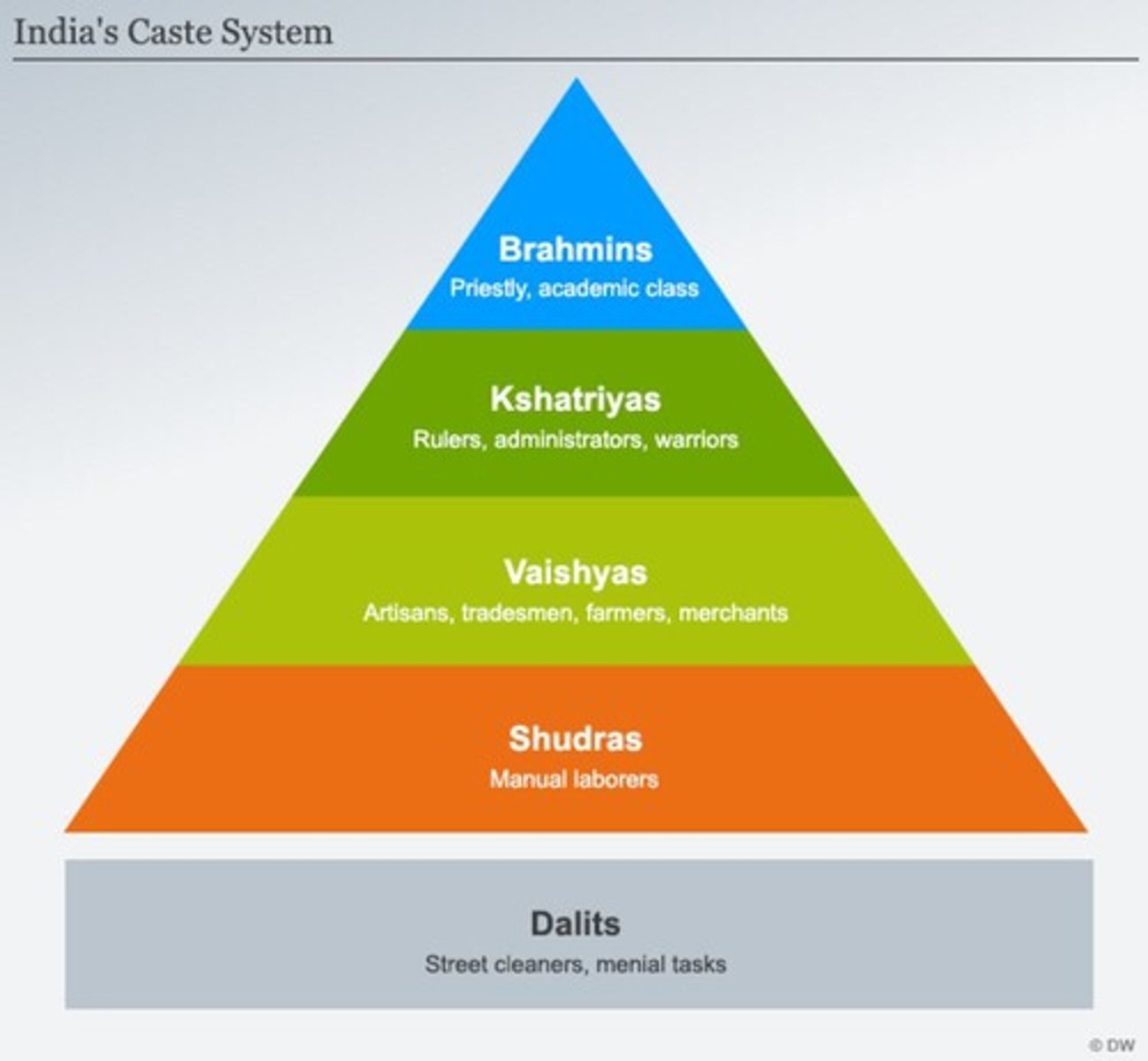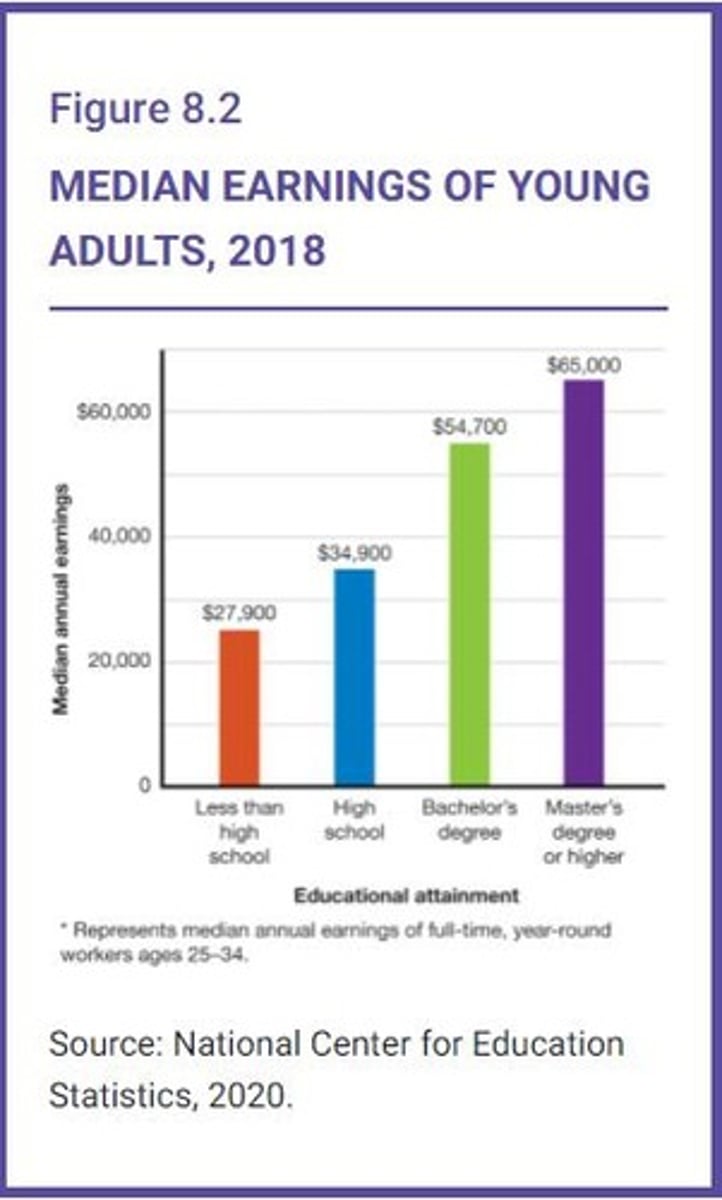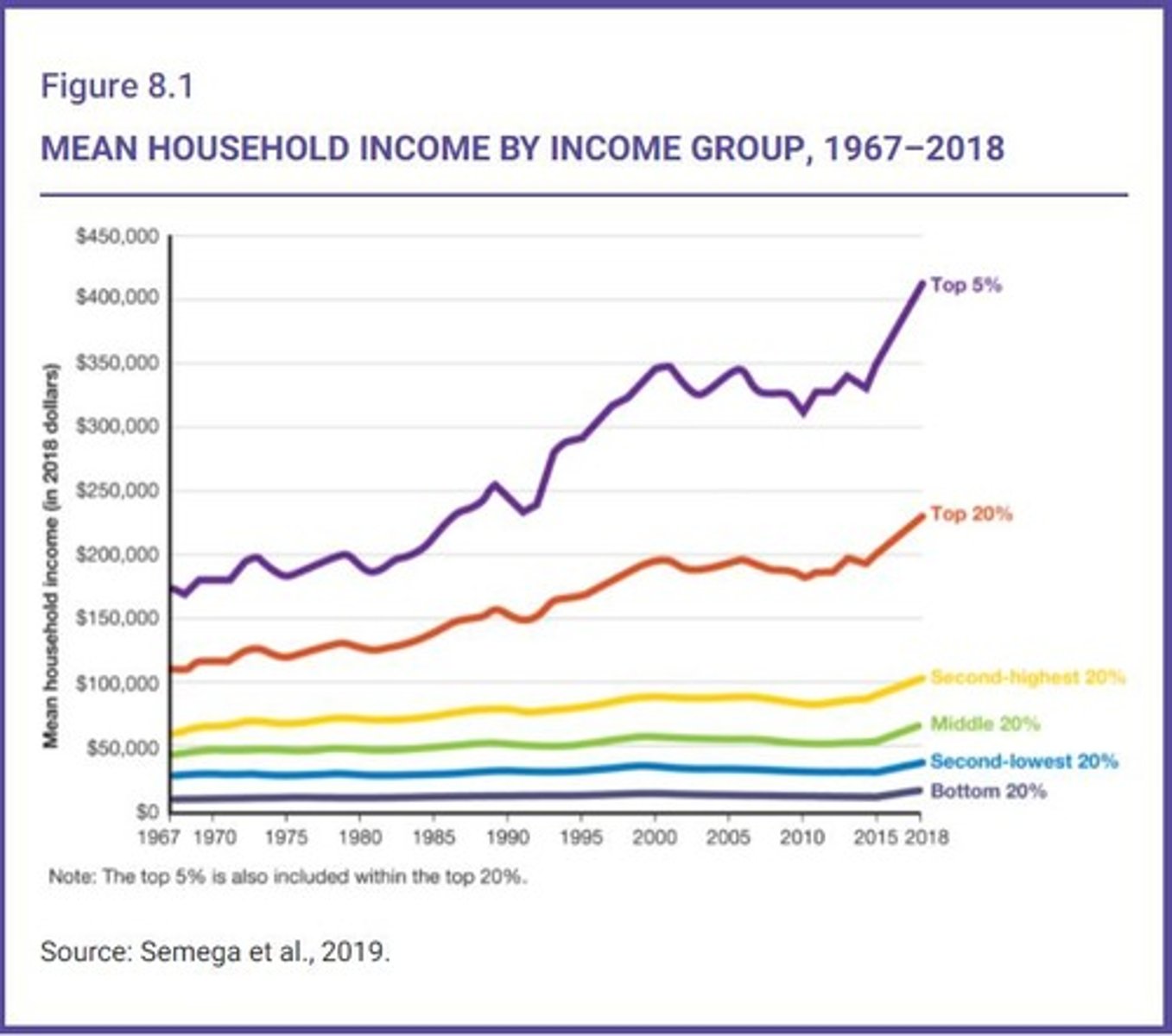Class Systems and Political Structures in Sociology and Stratification, Class, and Inequality in Sociology
1/71
There's no tags or description
Looks like no tags are added yet.
Name | Mastery | Learn | Test | Matching | Spaced |
|---|
No study sessions yet.
72 Terms
Social Stratification
Hierarchical arrangement of social groups by access to rewards.
Class Division
Distinct form of stratification based on socioeconomic status.
Slavery
Extreme inequality where individuals are owned as property.
Caste System
Social status assigned for life, based on Hindu beliefs.

Class Systems
Grouping based on shared resources influencing lifestyle.
Income
Money earned from wages, salaries, or investments.
Wealth
Total assets minus debts, indicating financial status.
Net Worth
Value of assets after subtracting liabilities.
Wealth Inequality
Disparity in wealth distribution among different groups.
Education
Key predictor of future occupation, income, and wealth.

Occupation
Job type indicating social standing and prestige.
Lifestyle
Individual choices reflecting class location and consumption.
Cultural Capital
Non-financial social assets influencing social mobility.
Economic Capital
Financial resources available to individuals or families.
Social Capital
Networks and relationships providing social advantages.
Perceived Wealth Inequality
Public perception of wealth distribution disparities.
Real Wealth Inequality
Actual statistical differences in wealth among groups.
Material Rewards
Tangible benefits received based on social status.
Symbolic Rewards
Intangible benefits like prestige or recognition.
Macro Social Attributes
Broad societal factors influencing individual status.
Strata
Levels in a social hierarchy based on privilege.
Income Disparity
Difference in income levels among various groups.

Prestigious Jobs
Positions requiring significant education or public service.
Consumption Patterns
Trends in how individuals spend their resources.
Capitalism
A class system in which the bourgeoisie owns the means of production.
Bourgeoisie
The class that owns the means of production; the rich.
Proletariat
The class that earns their living by selling their labor to the capitalist.
Surplus value
The excess value produced by workers that goes to capitalists beyond the cost of hiring them.
Proletarian revolution
A movement aimed at overthrowing the capitalist system.
Communism
A social system based on the common ownership of the means of production and the sharing of the wealth it produces.
Max Weber
A sociologist known for his views on class and status.
Class division
The separation of social classes based on control of the means of production and economic differences unrelated to property.
Status
The social honor or prestige accorded to a particular group by others.
Class
A relatively objective measure of social stratification.
Power
The ability to enact change, command resources, or make decisions, distinct from status and class.
Functionalist view
The perspective that all societies must be stratified because the benefits of different positions are not equal.
Inequality
A condition that ensures that the most qualified people will fill the roles that are most important to society.
Critics of functionalism
Those who argue that the functional importance of roles is difficult to measure.
Social classes
Groups that differ with respect to their power and ability to influence society.
Weber's key argument
Dimensions other than class are important in understanding social stratification.
Industrial capitalism
A stage of capitalism that creates an increasing gap between the wealth of the minority and the poverty of the mass population.
Social Mobility
the upward or downward movement of individuals or groups between different social positions through chances in occupation, wealth, or income
Intergenerational mobility
social movement across generations
Intragenerational mobility
social movement during their working life
Educational attainment
the key factor behind occupation status
Democracy
a political system that allows the citizens to participate in political decision-making or to elect representatives to government bodies
Participatory democracy
all members of a group or community
Liberal democracy
elected representatives
Populism
the belief that politics should reflect the needs and interest of ordinary people rather than those of elite individuals or groups
Authoritarianism
a political system in which the governing bodies or leaders use force to maintain control
Nation-state
political communities with delimited borders and shared culture
Nation
people with a common identity that ideally includes shared culture, language, and feeling of belonging
State
a political apparatus (government institutions + civil service officials) ruling over a given territorial order, whose authority is backed by law and the ability to use force
Sovereignty
a state's undisputed political rule over a given territory
Nationalism
beliefs and symbols expressing identification with a national community
Power
The exercise of power is accompanied by the belief system that justifies its use
Authority
a form of power seen as rightfully exercised or legitimate, people who are subject to government authority voluntarily
Citizenship
citizens are members of a political community, and have both rights and duties associated with that membership
Civil rights
legal rights held by all citizens in each national community
Political rights
rights to political participation, such as the right to vote in elections and run for public office
Democratic elitism
In large-scale societies, democratic participation is necessarily limited to the regular election of political leaders.
Max Weber
States that parties represent different interests and have different outlooks, with political leaders who have the imagination and courage to escape the inertia of bureaucracy.
Charismatic authority
Power that is legitimized on the basis of a leader's exceptional personal qualities or the demonstration of extraordinary insight from followers.
Rational-legal authority
Power that is legitimized by law or written rules and regulations in an organization.
Traditional authority
Power that is legitimized on the basis of long-standing customs.
Pluralist theory
Emphasizes the role of diverse and potentially competing interest groups.
Power elite theory
Describes small networks of individuals who hold concentrated power in modern societies.
Elections
A process influenced by the winner-take-all electoral system.
Interest groups
A group organized to pursue specific interests in the political arena, often through lobbying.
Polarization
A measure of how much societies' values and beliefs divide along political or ideological lines.
Revolution
Processes of political change involving the mobilization of mass social movements, often using violence to overthrow an existing regime and form a new government.
Social movements
Collective attempts to further a common interest or secure a common goal through action outside the sphere of established institutions, involving large groups of people who seek to spread a message.